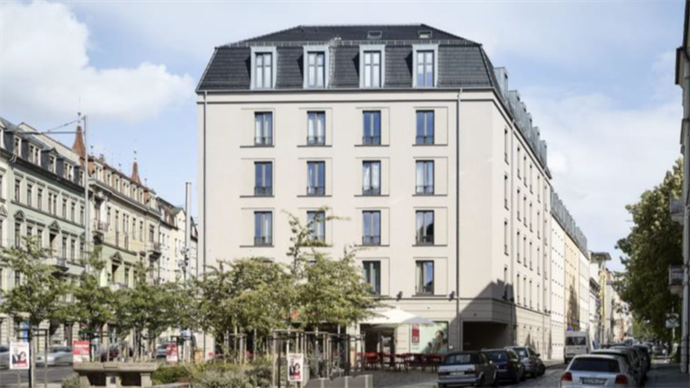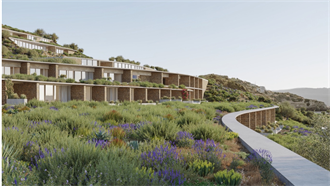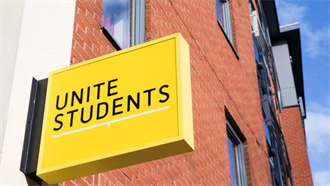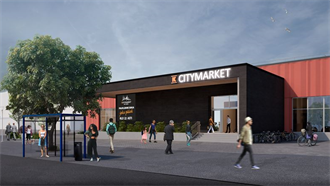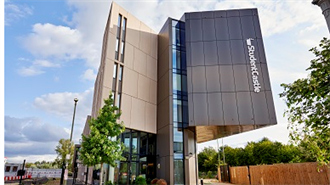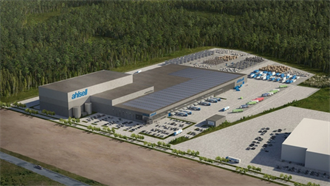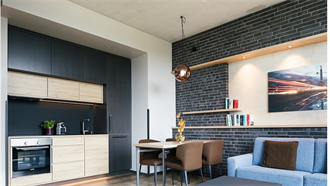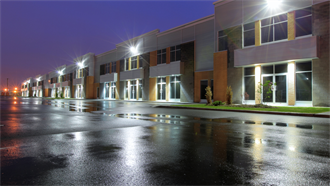Round Hill Capital’s Brian Welsh sees a bright future for Nido Student. The firm’s head of PBSA spoke with PropertyEU alongside Nido COO Darren Gardner about the company’s recent transactions, dealing with Covid-19, and what the future has in store for the living sector.
PropertyEU: Round Hill Capital acquired Nido, and a UK Nido-managed London portfolio from Blackstone in 2012, what growth has there been since then?
DG: Nido was founded in 2007 and really started to grow post Round Hill’s acquisition in 2012. This really accelerated when Brian took over in 2017.
BW: We have seen the portfolio expand from around 2,000 to 9,000 beds including international expansion into four countries - most notably in Germany in the last 12 months where we now have around 2,500 beds in several core cities. The brand and service offering has also evolved and has been shaped by our residents and their requirements.
PropertyEU: What have been some of the recent highlights? Nido announced just this week the sale of a London asset for £124 mln (€145 mln) to an undisclosed buyer.
BW: We have had a strong 24 months with projects ready to go in new territories including Spain, the go-live of our assets in Ireland and a number of other opportunities currently on the table such as re-entering the Dutch market. We believe that our identification of this sector as ripe for investment prepared us well for growth in the right markets. We have also sold some sizeable portfolios at market-leading pricing with the aim of investing in new markets at the right time.
DG: We cannot forget our Covid-response, which we have been very proud of and that has been recognised by our students, stakeholders and investors alike. As private accommodation providers we are pleased to say we never closed in any territory and had a relatively high number of students who were able to use their accommodation safely and securely throughout the pandemic. Having invested early in technology and wellbeing, we were in a great position to offer student support once Covid struck. In particular, we were able to offer an experiential booking and learning journey online almost immediately and our online events saw over 18,000 people attend.
PropertyEU: Which country has been the most challenging to enter?
DG: One of the hardest markets we have looked at is France because of how the deals are structured, and how PBSA works in that market. Each market is different and each investment partnership too - as a result we have not bought there yet.
BW: We have to demonstrate we understand new territories - we can take disciplines from, for example, the UK, but must adapt them for local jurisdictions and consider the local complexities.
PropertyEU: Much research has gone into establishing the company in Spain. Can you give an example of an operational issue of importance in that market?
DG: Five years ago, we would not have considered opening a PBSA property without catering in this market. Now there is a key question there: ‘Do we need catering?’ We can see the movement over the years to a more self-sufficient model like in the UK. Entering the UK and Ireland was easy.
PropertyEU: How complex is running a Student Accommodation company?
BW: It is complicated. Every asset in every country has its nuances. If you do not adapt to that you will very quickly fall short. Most of the assets are held on management agreements. Investors are very interested in what is going on at the asset level - how rents are going – and they often want to see the detail. Our investment partners have very stringent reporting requirements. While, as operators, Nido has to play a crucial role in managing investor expectations and supporting students in every way possible.
PropertyEU: How have you managed it over the last 12 months?
DG: Fundamentally all the countries have been trying to answer the same questions since the start of the pandemic, but they just answer the questions in a different order. The pandemic has been a challenge across all markets. We have had to keep students safe and communicate as well as possible, putting student wellbeing first and foremost in each case.
DG: Germany for example was slightly more relaxed in its approach than Ireland. It also had a state-by-state approach. It has been very challenging but fundamentally about keeping people safe; ensuring the buildings are clean and operational. In 2020, universities were saying we were going to restart face-to-face teaching, but we got to 2021 and they didn’t. We had students in residence, but they were not allowed to go to lectures and so there were some questions about rent reductions. We had to manage that on a case-by-case basis. Responses were customised in each location and on behalf of each investor. We never closed and we had staff on site throughout. In the UK when students did go home, we still had anywhere from 20% - 80% of residents still living in our properties. Interestingly, our own research highlighted that two thirds of students wanted to be in their city of study even if the university wasn’t open.
On the development side, we were pretty much Europe’s largest PBSA developer. Each jurisdiction exhibited different challenges. Some sites would have 50% of the staff on site, while others might close completely due to a construction ban. This opened up many construction agreements to analyse where liability lies, and any consequential effects on opening dates.
PropertyEU: Is the model a bit complicated? The company teams up with different financial partners across Europe.
BW: Each investment has different risk/return objectives. In recent years, we have focussed on a value-added strategy with development risk across Europe. We tend to work with an investor from the very beginning of a project and add our expertise in the operational journey as well as the design process. We find this structure gives us flexibility of approach and can be a real strength.
PropertyEU: Round Hill has owned the company since May 2012 – so it will be 10 years next year and appears to have been a big success certainly in terms of growth of beds. For how much longer will Round Hill hold the company? When might be the exit be?
BW: Round Hill’s long-term strategy is to operate with a vertically-integrated approach. This has been a particular strength over the pandemic, and there is a great deal more expansion to come.

